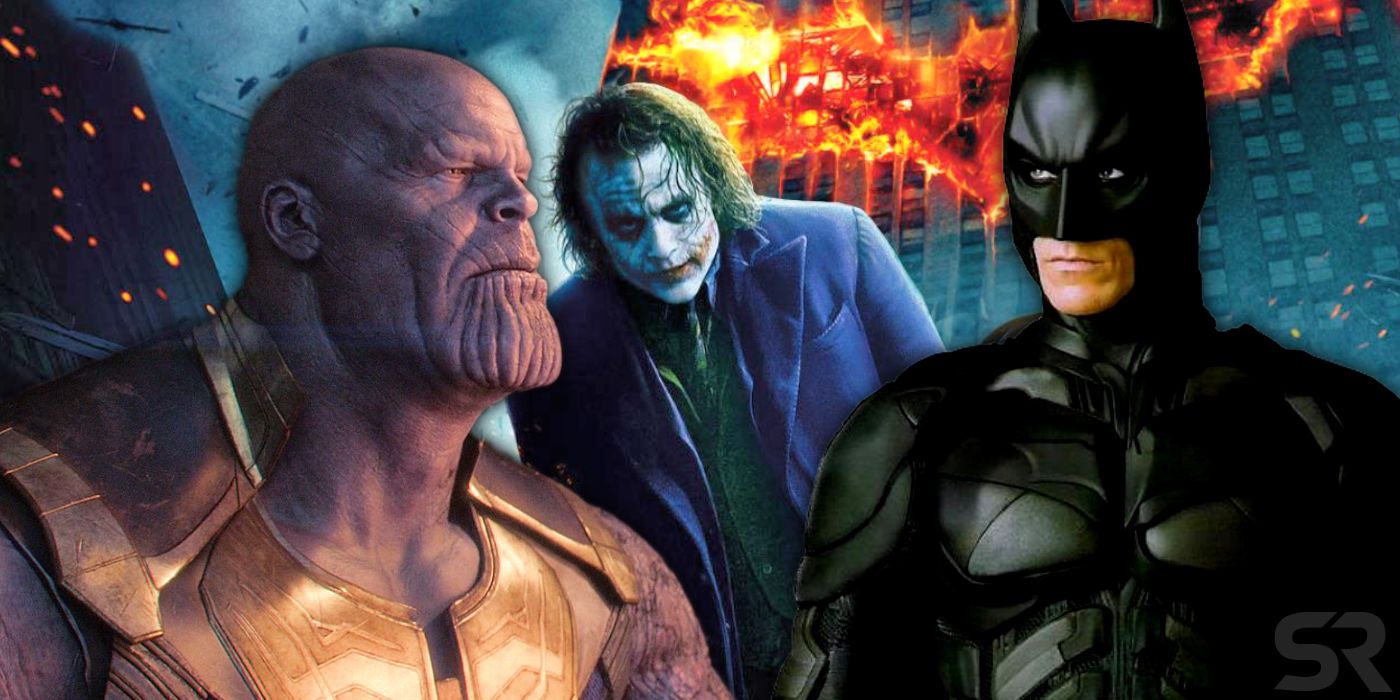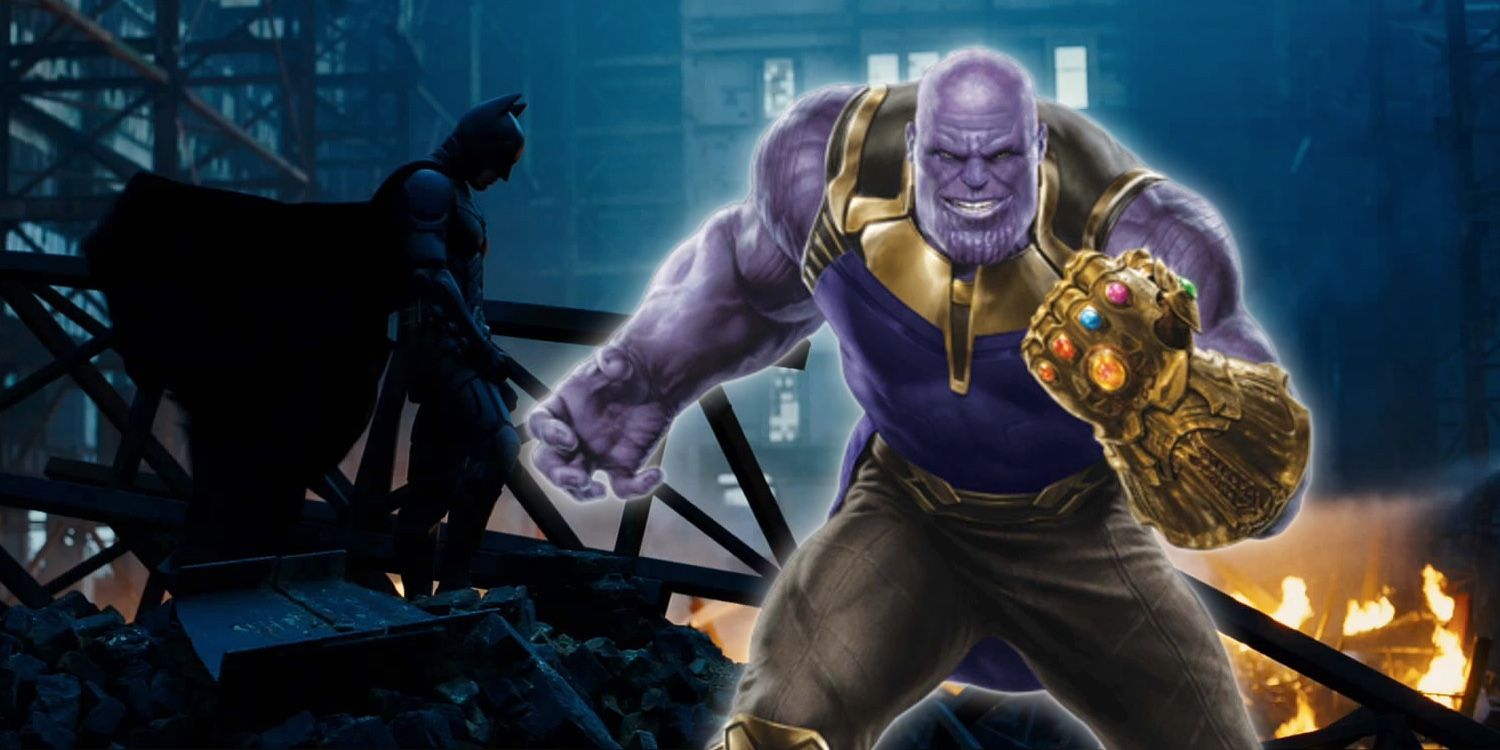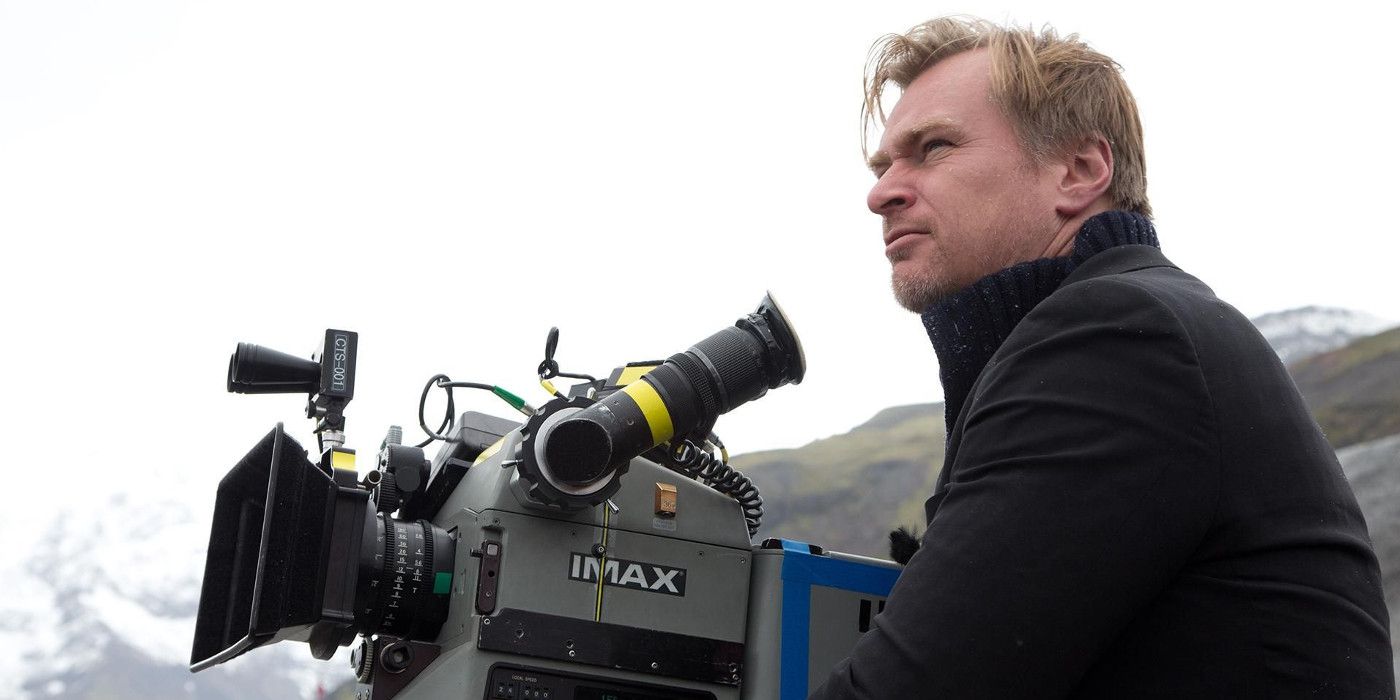It's been over a decade since The Dark Knight hit theaters, and it was a much bigger movie than people may remember. Warner Bros. spent years developing multiple ideas for the next Batman movie after Joel Schumacher's Batman and Robin tanked in 1997, and that eventually led to Christopher Nolan's Batman Begins in 2005, a reboot that took the Caped Crusader in a grounded and unique direction. And then after taking a break to release The Prestige the following year, Nolan returned with what's considered the greatest superhero movie ever made: The Dark Knight.
Starring Christian Bale as Bruce Wayne/Batman, Aaron Eckhart as Harvey Dent/Two-Face, and Heath Ledger as the Joker, amongst many other notables actors and actresses, The Dark Knight released in July 2008 and quickly became a worldwide phenomenon. At the time, there were only a few comic book movies releasing every year or every other year - contrasted to now, with 2019 seeing the most superhero movie releases ever - so its success was somewhat of a wake-up call for the industry. The thing is, people may be forgetting just how big it really was.
The Dark Knight Made More Money Than Infinity War
Last year saw the release of Anthony and Joe Russo's Avengers: Infinity War, which was billed as the culmination of a decade of Marvel movies, with characters uniting from all corners of the Marvel Cinematic Universe - and its critical and commercial success proves just how well it landed. In total, Avengers: Infinity War earned $2.048 billion at the worldwide box office, of which a third - $678.8 million - came from the United States. That itself is a lot of money, but here's the thing: that's actually less than what The Dark Knight earned at the domestic box office when adjusting for ticket price inflation.
The Dark Knight made $535.2 million domestically in 2008. When accounting for inflation, it earned $680.98 million using 2018 ticket prices; that's a bit more than $2 million extra. (Side note: The Dark Knight was the first superhero movie ever to cross $1 billion at the box office, and it did so without ever releasing in China.) Plus, according to Box Office Mojo, The Dark Knight also pulled in about 2 million more tickets than Infinity War. That's not to say Infinity War wasn't big, because it certainly was, but there's an entire generation out there that may not realize just how big The Dark Knight was when it hit theaters in 2008, and its success ultimately changed the entire movie industry.
How The Dark Knight Changed The Movie Industry
In addition to popularizing the superhero movie genre even more than it already was, The Dark Knight changed two core aspects of the movie industry that remains to this day. Firstly, Nolan pioneered the use of IMAX cameras in feature films. While movies have been releasing in IMAX theaters for many, many years, The Dark Knight was the first movie to actually use IMAX cameras during filming; of course, it was only for a handful of scenes, but the opening shot was convincing enough to make the use of IMAX cameras a standard for blockbuster movies going forward.
Secondly, while Marvel's Black Panther could potentially become the first superhero movie to earn a Best Picture nomination at the Oscars (though it wouldn't be the first comic book movie to earn an Oscar nomination in and of itself), the only reason it would have that particular distinction is because the Academy didn't nominate The Dark Knight in 2009. Sure, Heath Ledger set the record for posthumously winning Best Supporting Actor, but The Dark Knight was snubbed at the Oscars for Best Picture. And that's why the following year, the Academy Awards increased the number of potential nominees from five to 10... all because of The Dark Knight.
-
It's been almost 11 years since The Dark Knight released in theaters, but its impact on pop culture and the filmmaking industry hasn't waned. However, sometimes it doesn't hurt to remind people just why certain things are the way they are... because of The Dark Knight.



